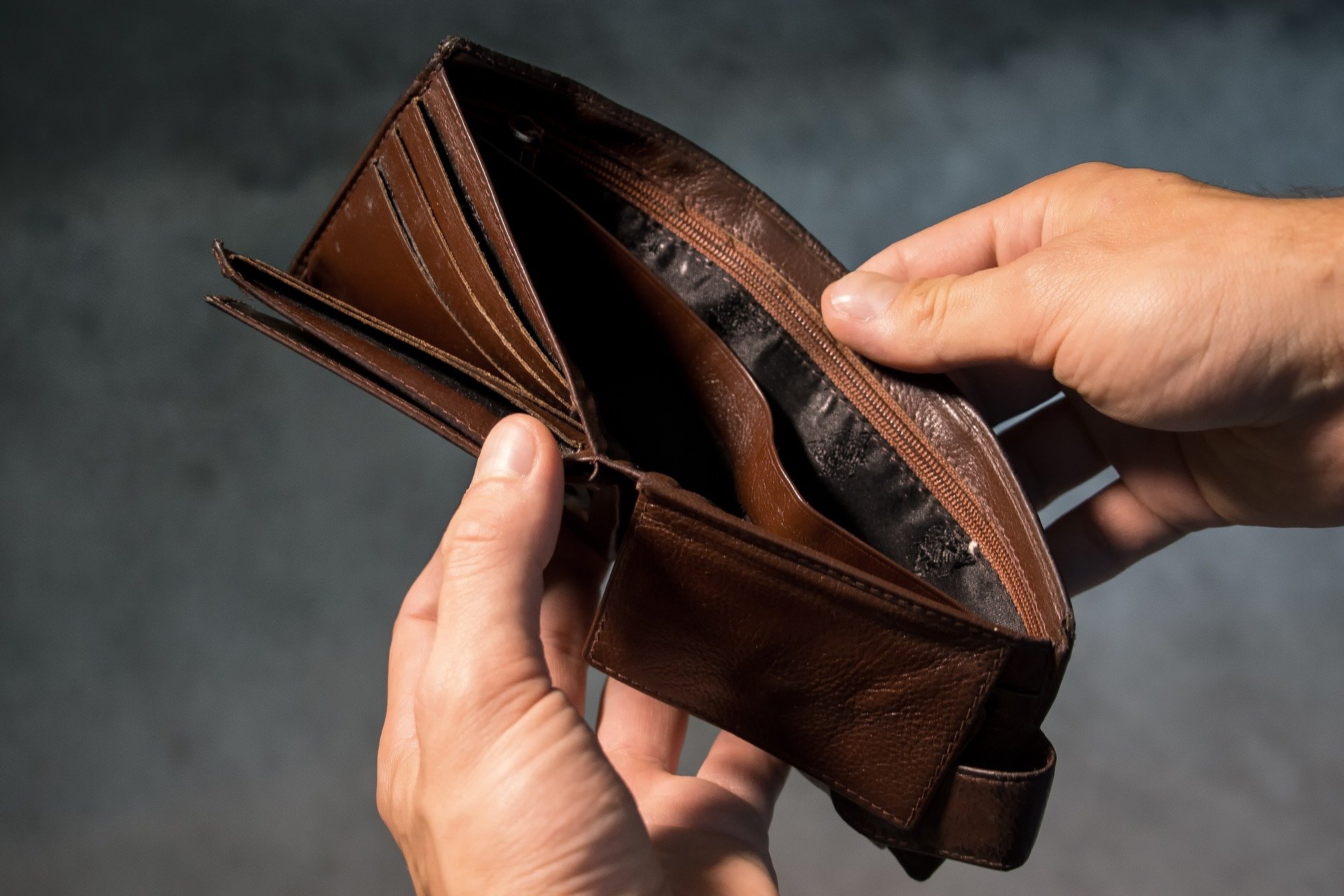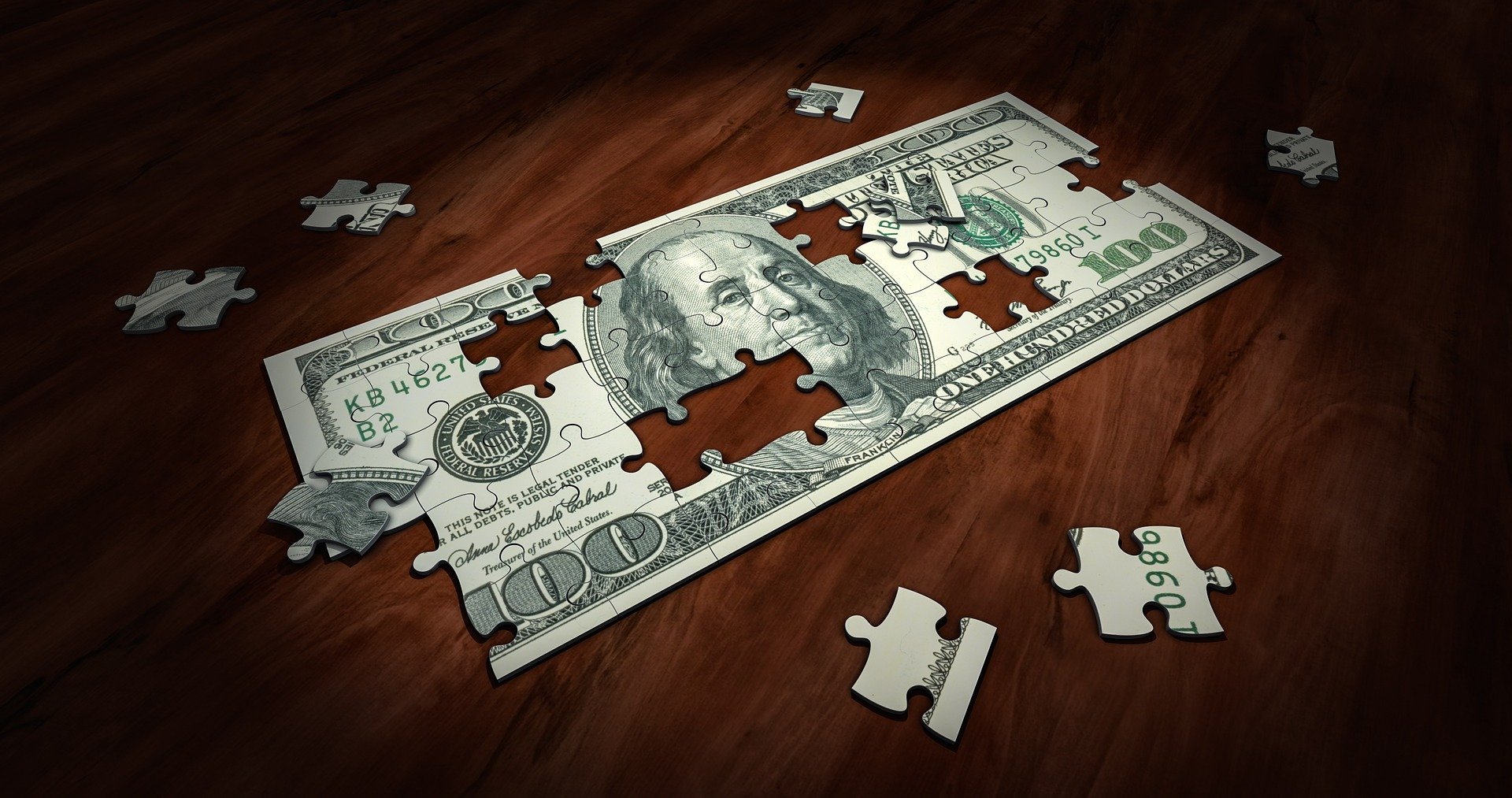Or, why Joe Manchin and Kyrsten Sinema are right

Many older Americans vividly remember Everett M. Dirksen, the late senator from Illinois, an ardent opponent of lavish government spending. He is credited with saying, about 60 years ago, “A billion here, a billion there, and pretty soon you’re talking real money.” No documents prove that Dirksen actually said it, but some claim they heard him saying it on the Johnny Carson show. Others argue that the press slightly changed what he said, but Dirksen liked it and did not deny it.
When Dirksen said that, people noted that even for financially conservative politicians, the real money started with billions. He said it in the 1960s when the cost of a car, then about $3,000, was real money for most Americans. For politicians, real money started with an amount about 1 million times larger.
As I write this, politicians in Washington are arguing about spending a few trillion dollars less or more. Opponents of spending more are perceived as irrationally obstructing the path to prosperity. I hear that those few trillions should not be an issue in the context of trillions wasted on unnecessary wars and trillions spent dealing with COVID-19. Ergo, some ask, why is there a problem investing a few trillion more in upgrading infrastructure and developing prosperity?
Today, one needs to pay for a car about 10 times more than in the 1960s, and that $30,000 is the real money for most Americans. For politicians in Washington, real money starts at $3 trillion, an amount 100 million times larger. What happened with America that politicians’ appetite and public acceptance for government spending today is 100 times bigger than it was about 60 years ago? Is it better or worse? Do we know something that Americans did not get in the 1960s? Or, is it the other way, they knew something then that we miss?
What is better, cash on hand or its equivalent?
Presently, more than ever before, Americans turn to the government when facing a problem. My great-uncle, who immigrated to America in 1919, whenever in trouble, used to say, “You wanted America; you got it.” It did not even cross his mind to ask the government for help. Like most people of his generation, he preferred cash on hand instead of any cash equivalents from the government. In his time, Americans believed that, if left alone, they could find a way to earn the cash they needed. After all, they lived in the land of endless opportunities.
For today’s Americans, those opportunities are not so obvious. Instead of earning money themselves, they prefer that its equivalent be given to them.
A few generations back, people preferred cash because it gave them the freedom to bargain for the best product or service they could buy. It is human. If we buy for ourselves with our funds, we seek the best value for our cash. If we use our money to pay for somebody else, more often than not, we seek the lowest price and care less about the quality. If we purchase for ourselves, but someone else is paying, we tend to spend the most we can get.
What happens when we do not pay with our money when buying for someone else? We end up purchasing overpriced, inferior products or services. That is what the government does. Even if bureaucrats handling these matters are saints, we cannot avoid systematic waste. We need to have formal procedures, but people are different. Regardless of how much we try, only some will get what they need; many will get too little, costing us too much. Some will get nothing despite that they should; others will outsmart the system, getting what they do not deserve.
Lastly, to redistribute the goods and services, we need administrators; ergo, even in a perfect system, the recipients receive only a portion of every dollar the government spends for that purpose. If we can eliminate that government intermediary and get direct cash instead, we get more. However, we have an extensive government redistribution because many Americans worry that they would get less, or nothing, without it.

About a century ago, when my great-uncle arrived in Detroit, Americans did not worry about it. What has changed? Should we not look at that before throwing more money into a concept that by design is less efficient than what had worked before?
Let us look at the infrastructure projects
Yes, we need to improve our roads and rebuild bridges. All of us should have easy access to the internet and so on. But let us look calmly at these claims. It is amazing to dash across the continent in our family car. But our once-a-year trip across the country, if ever, does not justify expensive highways — trucks moving stuff around need these roads. They do it for profit, and the largest among them are multibillion-dollar corporations. Why do they not finance the roads they need?
There are fuel taxes and licensing fees that are supposed to pay to maintain public roads and bridges. Should we not ask first why those roads and bridges have not been rebuilt? When we start asking questions, things get interesting. The Washington Post claims that our infrastructure is “good” or “fair,” which means safe and usable conditions. Only 7.5% of highway bridges, mostly in low traffic areas, are classified as poor. In other words, there is no emergency; we have time to find out why our infrastructure is not excellent and make necessary corrections. There is no need for the urgent spending of trillions of dollars on credit.
It could be different in other states, but we know why the state has no money in Illinois, where I live. The unions of government employees achieved an undue political power, persuading politicians to lavish them with salaries and pensions that bankrupt the state. They solidified their power through regulations requiring union labor on practically all major construction jobs. As a result, Illinois has no money for infrastructure improvements, and whatever is done costs more because of the requirements of using union labor. Instead of fixing that corrupt system, Illinois politicians hope to get a nice chunk of that $3 trillion windfall.
Who should pay for the internet service?
When I am on the internet, Google makes money, so does Facebook. If I did not have internet service, Amazon could not make a dime on me. The richest companies in the United States and their billionaire owners are financially interested in everyone having internet service. But they convinced Bernie Sanders and the like-minded that the government should pay for it. Why?
I looked closer at that section of the proposed spending. It boils down to wasteful giveaways of public money to the already wealthiest corporations in the United States to do what already is in their best financial interest. But Bernie Sanders insists that billionaires would pay for it. It will be exactly the opposite.

When you get something free from the government, billionaires do not pay for it; they get richer
Politicians advocating for increased government support stay silent that what we are getting is not free; someone is getting paid for our “free” education, healthcare, and whatever else we get from the government. Whenever Bernie Sanders opens his mouth, he complains about billionaires getting richer on our backs. With the size of the government projects, only the largest corporations can provide the products and services that the government distributes. It means that every social program that Bernie Sanders promotes enriches already wealthy people, many of them billionaires.
It is not true that the wealthy will pay for it with their higher taxes. First, the more money one has, the more options are available to avoid taxes. Next, even if somehow those taxes hit the very rich, they can raise slightly the prices of the products and services of the corporations they control. We all will pay them back in increased inflation. Lastly, already the deep pockets keep a portion of their assets in tax havens outside of the United States. They can move more wealth out of the country and, in the extreme, renounce their citizenship. So far, not too many Americans do it, but the number is growing.
Those who do not qualify for government support, because they are earning a little more than the poverty level, will eventually pay back that $3 trillion with interest. Banks will lend the government those trillions, but banks do not have money. They have deposits from billionaires. That $3 trillion loan will come from the most opulent among us. The same entities that give the loan will get it back in contracts and grants from the government. They will make profits on those contracts, and then they will collect interest on the loans. With that double-dipping, they will be the only ones benefiting.
Even for the United States, $3 trillion is a lot of money. If borrowed by the government, it will not be available for private investments, which are usually more profitable than the governments’ bonds and energize the economy more than the government spending. It means slower economic growth than if the same money were invested in the open market. The opportunities that my great-uncle had to earn the cash he needed will diminish further. The middle class, bearing the salient burden of the debt, will continue shrinking. More people will seek government assistance. Fewer people will believe that there is an option of getting better without the government’s help. It will deepen the dependence of Americans on the government. It will make the rich richer and the poor poorer.
Bernie Sanders tries to convince us that he wants to take from billionaires and give it to the needy ones. I do not hear the billionaires complaining. The needy ones should start paying attention.

 Many tell us what to think. I ask my readers to be skeptical. Question me and others.
Many tell us what to think. I ask my readers to be skeptical. Question me and others. 